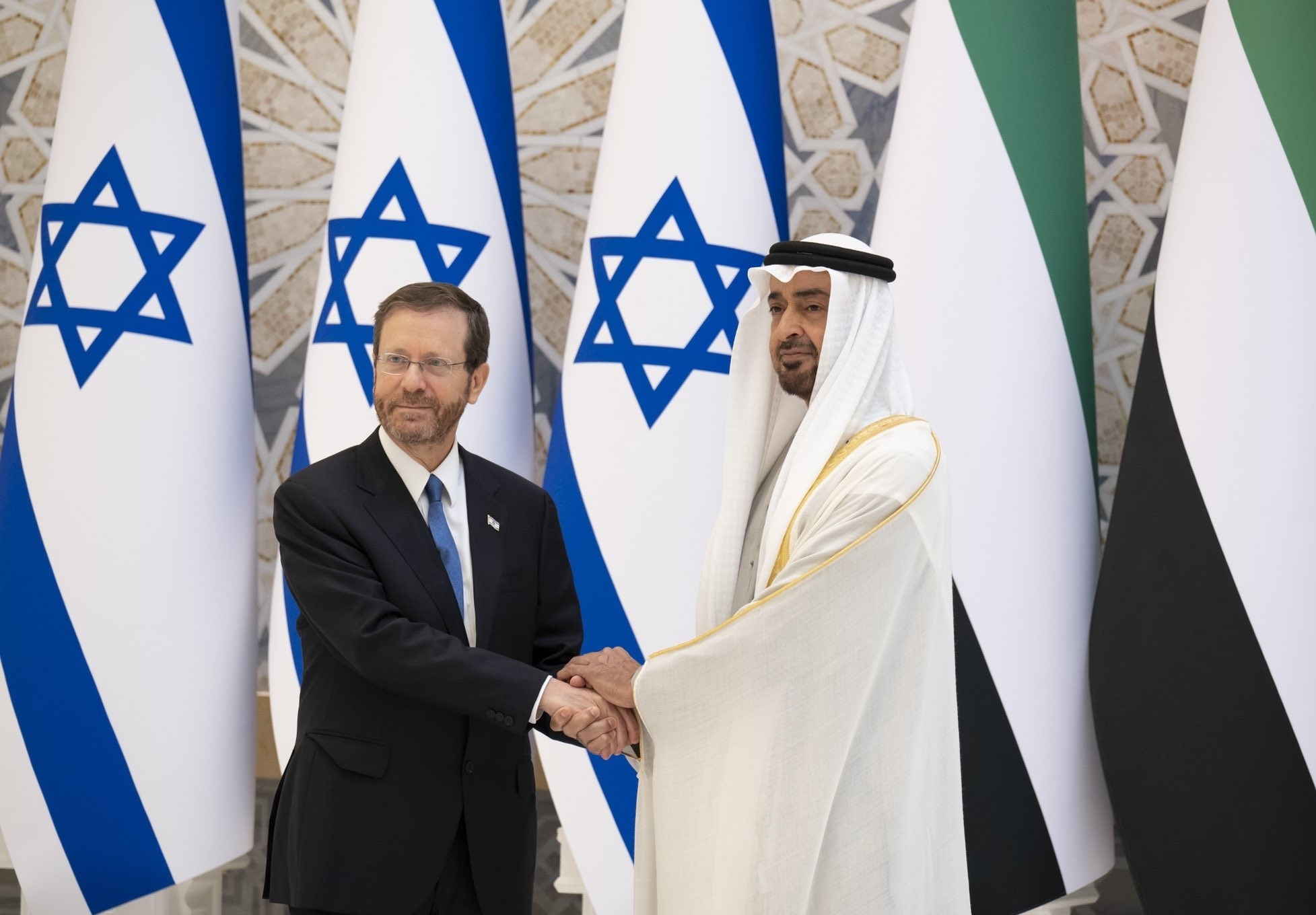Ali Abdi in an interview with the site of the Strategic Council on Foreign Relations stated that exerting pressure on Iran as well as making a psychological publicity against it, were other objectives of the visit. He added:” as the president of the Zionist regime is merely a figurehead official and has no executive and governmental authority, it was not a special or important visit and had no practical or executive achievement for any of the two parties. In fact, the trip made by Natali Benet to UAE a couple of months ago was more important than this visit”.
In the meantime, Abdi considered the visit made by Isaac Herzog to UAE and his remarks on the support of the Zionist regime to Abu Dhabi against any threat as having political, diplomatic and publicity aspects.
Consequences of the Presence of the Zionist Regime in the Persian Gulf
Having stressed on the necessity to pay serious attention to the Axis of Resistance on the consequences of such relations, he added:” the presence of the Zionist regime in the region will definitely have severe political, security, economic, diplomatic and regional consequences. The determination and the seriousness showed by UAE to their relations will add the aspects of the consequences. Although the visit may not bring extensive output but it should not be bypassed (ignored) easily”.
Abdi referred to the consequences of Yemeni attacks against UAE and intensification of regional confrontation between the Axis of Resistance and those countries that are after compromise with the Zionist regime and said:” for sure, at such a circumstance, the visit of the Zionist regime president may inflame the ambiance of regional hostility; because the attacks of Ansarallah against UAE were aimed in line with making the country revise its relations with the Zionist regime as well as change its regional equations. But with the high profile welcome extended by UAE, it showed its willingness to seriously pursue the previous path. These situations will add new layers to the regional tensions which can cause uncalculated consequences”.
Having referred to exploiting of numerous leverages to make UAE change its regional behavior, the expert on the Zionist regime added:” the regional relations and order should not be hampered with these relations, particularly in the Persian Gulf”.
He pointed out to the revelation of defensive weakness of UAE and noted:” UAE made effort to apply strong sensor and severe punishment for those who leaked images and information about the attacks and thus to create a kind of deterrence; but it was revealed that the deterrence and defense system that they acquired with spending billions of dollars did not reward with such a huge investment. The continuation of these situations will definitely inflict serious damages on Abu Dhabi”.
U.S. Plan for the Region
Concerning the U.S., the Zionist regime and some Arab states’ effort to change the political and security status of the regions, Abdi stated:” If we assume that the U.S. is changing its concentration from the Middle East region to the East Asia, for sure it should prepare and design secured infrastructures for itself, in a way that in its absence, its interests will not be harmed. It seems that the Zionist regime is going to act as proxy for the U.S.”.
He explained:” However, the Zionist regime will not bear alone the burden on its shoulder. The U.S. is looking for forging a regional bloc that can preserve its interests in which the Zionist regime, rulers of the Southern rim of the Persian Gulf and Egypt will be present. They have also defined some roles for Turkey to play, but anyway the leadership of the regional order will be borne by the Zionist regime. Abraham Accord is also analyzed within this framework”.
Having pointed out to the U.S. numerous measures to proceed with the infrastructures of the Accord called Abraham and also trilateral agreement among Jordan, UAE and Palestinian Authority to supply Jordanian water by the Zionist regime, Jordanian electricity supply by the Regime as well as UAE mediation and its investment, he said:” the issue of the regional energy corridor which is being defined among the Southern countries of the Persian Gulf, Al-Shamat region and the Zionist regime must be paid due attention in this regard. In fact, they are making effort to design the energy, financial and economic fields in a way that the Zionist regime will certainly be a part of its industrial and economic infrastructures”.
The expert on the Zionist regime issues continued:” likewise, in the security field, it was announced sometimes ago that the U.S. Central Intelligence Agency (CIA) has dissolved its Iran Group, and has transferred all of its authorities to the Mossad of the Zionist regime in order to proceed with the interests of the Zionist regime, to act as a CIA observer and to secure its interests too. All of these developments indicate that the energy, security and economic infrastructures are being designed in a way that the Zionist regime not only becomes a part of their regional project but also becomes the pivot and the main pole of the region”.
Abdi believes that the Axis of Resistance should analyze that situation correctly and have plan for it in order not to be in an emergency situation. Before letting the enemy take them to its own game and make them accept the situation, they should plan solutions as soon as possible to prevent the materialization of the U.S. mega scale project for the region.
He stressed:” Efforts should be made that the struggle against the Zionist regime will not turn to struggling against a regional bloc; because in that case it will become more complicated and more expensive. Otherwise, we will enter into serious challenge with all countries whose interests have been inextricably intertwined with those of the Zionist regime”.










0 Comments